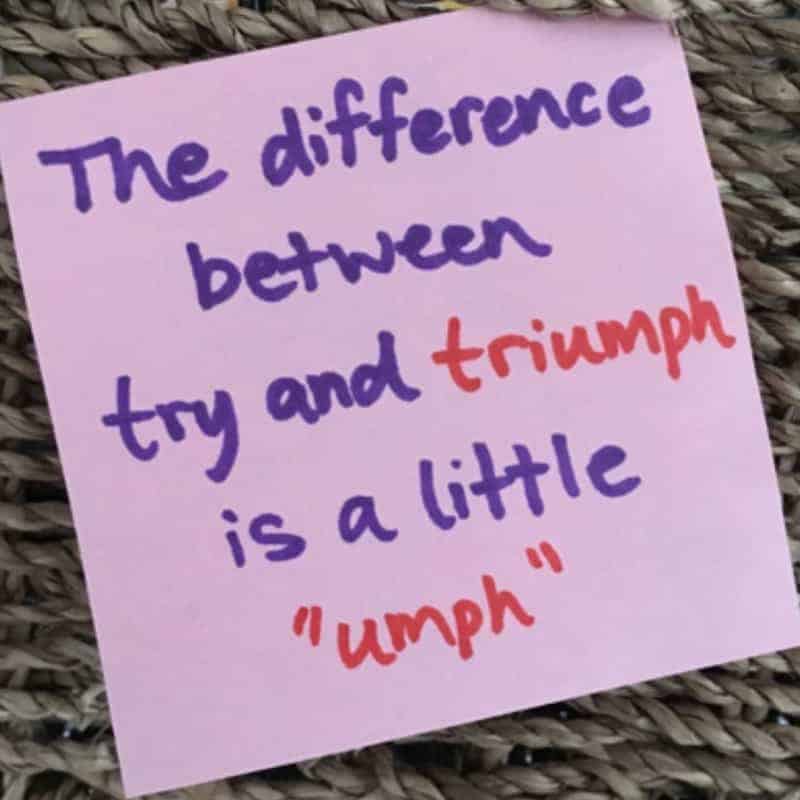How To Have A Healthy Aging Scalp and The Best Dandruff Treatment
By Vanessa Camozzi on July 13, 2023

Hey there, lovely readers! I'm thrilled to share some invaluable tips with you today on how to embrace personal growth, cultivate positivity, and maintain a healthy mindset as we navigate our 40s and beyond.

Life is a beautiful journey, and with a growth mindset, daily affirmations, a positive environment, self-care practices, and meaningful connections, we can truly thrive.
So, let me dive right in! As we enter our 40s and beyond, it becomes increasingly important to prioritize our mental well-being.
The choices we make and the mindset we adopt greatly impact our overall happiness and quality of life.
In this blog post, I will explore the significance of maintaining a healthy mindset during this time of your life and how it contributes to your well-being and to having a growth mindset.
Have you ever heard of a growth mindset? It's a game-changer for me. A growth mindset is all about believing in the potential for growth and improvement in every aspect of our lives.
By adopting this mindset, we open ourselves up to new opportunities and challenges, and we become more resilient in the face of setbacks.
Here are some great books for a growth mindset that I highly recommend:

These three books offer valuable insights, actionable strategies, and inspiring stories to help you develop a growth mindset, embrace challenges, persevere through obstacles, and make continuous progress toward your goals.

Words have tremendous power, especially the ones we tell ourselves.
Daily affirmations are positive statements that can help shape our growth mindset and boost self-confidence.
By repeating affirmations regularly, we reinforce positive beliefs about ourselves and our abilities.
Repeat these affirmations, or create your own, with conviction and belief, and witness the transformative impact they have on your mindset. Or try this cute little song in the video!
Surrounding ourselves with positivity is like nourishing our minds and souls. It's crucial to actively seek out positivity in our lives and make it a part of our daily routines.
Start by consciously choosing to engage with uplifting content, such as motivational podcasts, inspiring books, or thought-provoking blogs (just like this one!)

Another powerful strategy is incorporating positive words into your everyday life.
Replace negative self-talk and complaints with statements of gratitude and encouragement.
For instance, instead of saying, "I can't do this," try reframing it as "I will give it my best shot and learn from the experience." These small changes in our language can have a profound impact on our growth mindset and overall well-being.
Writing a gratitude journal involves regularly recording the things you are thankful for in your life. It is a practice that encourages you to reflect on the positive aspects, experiences, and people you encounter daily.
By consciously focusing on gratitude, you shift your perspective to recognize the abundance and blessings that surround you.
Keeping a gratitude journal helps foster a positive mindset, boosts overall well-being, and enhances resilience.
It serves as a reminder to appreciate simple pleasures, find joy in small moments, and cultivate a deeper sense of gratitude for both the ordinary and extraordinary aspects of life.
Regularly expressing gratitude through journaling can have a profound impact on mental and emotional health, promoting a greater sense of contentment, optimism, and connection with oneself and others.
In the hustle and bustle of life, it's easy to put self-care on the back burner. But remember my friends, we can't pour from an empty cup.
Taking care of ourselves is crucial for maintaining a healthy mindset and overall well-being.
There are countless self-care practices to choose from, so find what works best for you. It could be taking regular breaks to relax and unwind, indulging in hobbies or activities that bring you joy, practicing mindfulness and meditation, or simply prioritizing quality sleep and nourishing your body with healthy food.
Have you ever tried a Joe Dispenza meditation? Pop in your Airpods now, and have a listen. His meditations are so powerful.
Remember, self-care is not a luxury; it's a necessity. Make it a non-negotiable part of your daily routine, and watch how it positively impacts your mindset and energy levels.
Perhaps this is the most important tip. As we journey through life, the importance of meaningful connections and support becomes even more evident.
Surrounding ourselves with a network of positive and supportive individuals can make all the difference in our mental and emotional well-being.
Now, let me share a personal story with you. For the past three years, I have been undergoing therapy sessions via Zoom with a therapist, and let me tell you, it has been life-changing.
That's right every Monday for the past three years I have been putting in the work! Therapy has provided me with a safe and supportive space to explore my emotions, navigate life's challenges, and foster personal growth.
I hope people can see that seeking help from a therapist does not mean there is something inherently wrong with us. In fact, it takes immense strength and courage to acknowledge that we can benefit from professional support.
Therapy is not just for those facing severe mental health issues; it is for anyone and everyone who wants to lead a more fulfilling and balanced life.
It's unfortunate that in some societies, there is still a lingering stigma surrounding therapy. However, during my time living in Buenos Aires for eight years, I witnessed a refreshing perspective on mental health.
Fun fact* in Buenos Aires, there are 1,280 psychologists per 100,000 people. Read more about therapy in Buenos Aires and how prevalent it is here in this CNN article.
Therapy was not seen as a last resort or a sign of weakness; it was an integral part of daily life.
People openly discussed their therapists, shared their insights, and encouraged one another to seek professional help when needed.
This cultural attitude towards therapy taught me a valuable lesson: taking care of our mental and emotional well-being is just as important as taking care of our physical health.
It's time we break free from the stigma and embrace the idea that seeking therapy is an act of self-love and empowerment.
So, my friends, let's normalize the conversation around therapy.
Let's celebrate those who have the courage to seek support and acknowledge that we all have our unique journeys and challenges.
Remember, a therapist is like a trusted guide who can help us navigate the complexities of life, gain new perspectives, and develop the necessary tools to thrive.
Let's create a society where seeking therapy is seen as a proactive step toward personal growth and self-care. Together, we can foster a culture that values mental health and supports one another on our paths to living fulfilling and authentic lives.